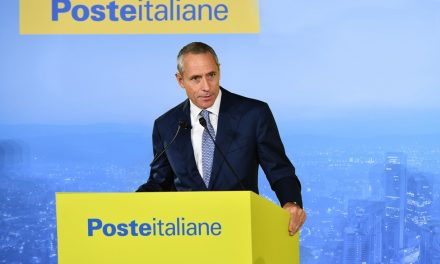
Wells draws up TNT battle plan
With just under two months to go until the postal market is open to full competition, TNT Mail UK chief executive Nick Wells reveals how the TPG-owned group is planning to break Royal Mail's 350-year grip on the delivery business. Jessica Phillips reports
Nick Wells has come a long way since his first job, aged 15, where as a waiter he learned to balance five plates on one arm. But, as chief executive of TNT Mail UK, charged with providing a viable alternative to incumbent operator Royal Mail, he will need to be just as light on his feet.
No one, least of all Wells, is playing down the scale of the task, which is enough to make the 12 labours of Hercules look like a stroll in the park. After all, Royal Mail has a 350-year head-start, 70,000 postmen and women delivering to 26 million homes every day and still holds 97.2 per cent of the market.
TNT Mail's aim, however, is not to topple Royal Mail from its mountainous peak – which is probably wise considering Postcomm estimates it will retain up to 95 per cent of the market until 2012 – but to quickly establish a reputation for service excellence.
Wells explains: "There's no point trying to replicate what Royal Mail does, we have to be smart about the way we compete.
"We believe Royal Mail will always retain its dominant share of the market, which is worth over #6bn, so there is a lot to go for. It's not about cutting into Royal Mail's profits, it's about providing the best possible service."
The company plans to steer clear of consumer mail for the time being, focusing on business-to-business and business-to-consumer volumes for its profits.
Wells claims the established reputation of the TNT brand is a huge bonus, as it already employs 18,000 people in the UK and has revenues of #1.2bn, so utilising existing infrastructure is crucial. "We would be foolish to start from scratch," he adds.
The access deal made with Royal Mail – phase one of its growth strategy – means TNT's Premier Service uses the incumbent operator for the final mile delivery.
Phase two, the TNT Premier Sort service, is ahead of schedule and also uses Royal Mail for the final mile. Phase three, the end-to-end service, is in development.
Observers claim the withdrawal of milk delivery firm Express Dairies, which delivered larger parcels for the group, has derailed its end-to- end scheme, but Wells insists the loss was insignificant: "It has not delayed our plans, it was just a small part of our programme, very much a market entry approach, so we're not worried that it's no longer there."
After just 30 months of limited competition, TNT Mail UK has secured a number of high-profile clients, including Lloyds TSB and BSkyB, shifting over 800 million items per year. But with fewer than 50 days until full competition in the postal market, there are still major barriers to overcome.
Even Postcomm concedes these obstacles – including Royal Mail's VAT exemption and the risk of anti-competitive behaviour (PM last week) – are huge. But, most worryingly, there is widespread ignorance of deregulation. In a recent Postcomm survey of 1,200 businesses, 75 per cent did not know about the liberalisation process, or that the market is due to open in January.
TNT is planning a major direct marketing push to overcome this lack of awareness. Wells says: "We are focused on large businesses at the moment, but that will change and we will need to communicate to smaller firms. We have several campaigns planned and have recreated our image as a post modern mailer. We're an innovative postal operator ready to do business in the 21st century."
Wells believes that the 48-hour, guaranteed delivery service TNT offers means that direct marketers can plan for campaigns to drop on Saturday mornings, and co-ordinate with call centres, giving TNT a unique selling point. He adds: "Clearly once we set up our network there'll be even more for us to offer."
TNT also trades on the fact that the parent company is the Dutch post office, TPG, which Wells claims is the most efficient postal company in the world. But with the Dutch market also opening to competition, TPG is looking to the international arena to maintain growth.
Wells has also pinpointed data integrity and cleansing as an area that TNT needs to investigate. Until recently, TPG held a stake in opt-in data provider the Preference Service – a joint venture with Royal Mail – but has since sold the business to IPT (PM August 26).
This is one of the areas former DMA (UK) director of postal affairs and industry development David Robottom is to study. Robottom, who quit the DMA last month to set up his own consultancy (PM October 21), will also advise the company on building relationships with mailing houses – a crucial battleground in the fight against Royal Mail – and on public affairs.
As for Wells, whether he can continue to juggle his roles as chief executive of Circular Distributors and Lifecycle Marketing, while spearheading TNT Mail remains to be seen. But, one thing is certain, his balancing skills will be put through a very strenuous test.













